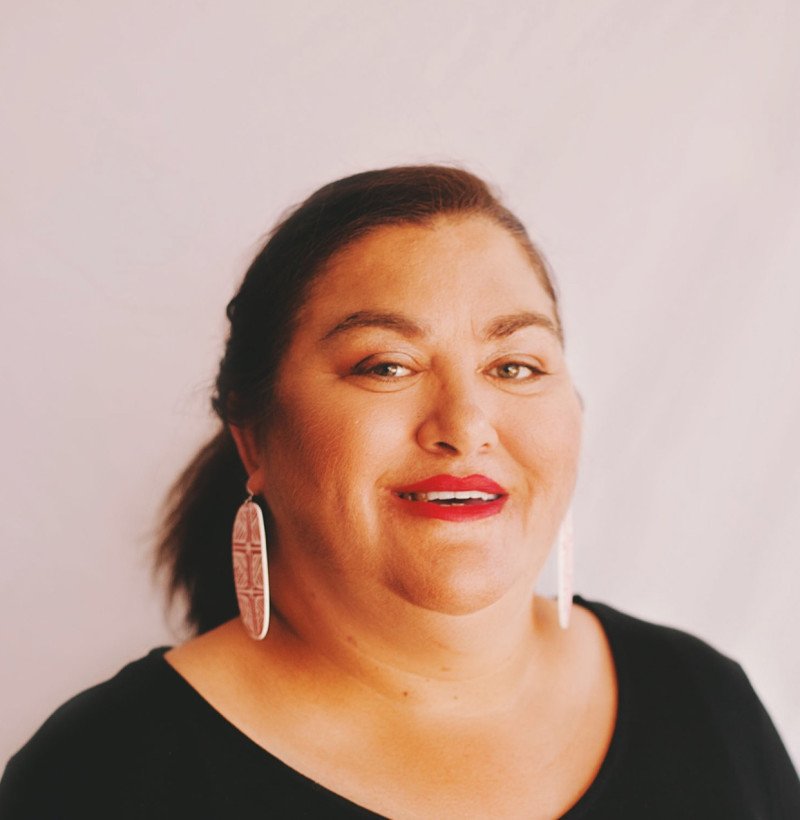Hospitals are a Place to Die
Veronica Heritage-Gorrie
Hospitals are a place to die for Aboriginal people. We don’t see them as a place of treatment or care. Our symptoms of illness and ill health are not taken seriously even when we pluck up the courage to attend a doctor. This is not new. It stems from generations long before me and more so in regional areas.
Last year in July, during the pandemic, I had blurred vision, was unsteady on my feet and slurred my speech. It lasted for 3 days. I felt ill and went to my local doctor who sent me home and advised me to take an over-the-counter pain relief. I have always been medically inclined and even as a young person I wanted to be a doctor but I was denied the opportunity to get into University for that specific course. If anyone had told me these symptoms, I would immediately know that it sounds like a stroke and advise them to go to hospital. But at the time, last July, I was not able to process my thoughts. It wasn’t until months later when I was attending a specialist appointment in Melbourne and I was asked how I had been when I mentioned my three days of ill health. I was tested and it was revealed that I had a blockage in my brain.
I was eventually prescribed blood thinners and even then, I wasn’t told of the consequences of taking these. The fact that I now bruise easily. If I have a fall or seriously hurt myself, the risk of internal bleeding is much higher and could even be life-threatening. I wasn’t told that other prescribed medications cause weight gain. Like many in my community, we are left to do our own research with Dr Google.
— —
A couple of years ago, I required surgery to have my thyroid removed. Just moments before surgery whilst I was being prepped, my blood pressure dropped which caused concern for the surgeon. I was asked, ‘What is your normal blood pressure?’ I was not able to answer this. I told the surgeon that my doctor does not do my blood pressure so I have no idea. Since the operation, I still have low blood pressure but have to ask the doctor during my appointments to take my blood pressure. This concerns me because a lot of my people wouldn’t know to even ask the doctor or have the courage to ask.
In the early 1900s, an epidemic of tuberculosis and smallpox killed many Victorian Aboriginals including many of my family members. Not one of them were medically treated. They were left to die. These diseases were brought in by the colonisers. My grandmother was diagnosed when she was eight years old and survived, but many of her siblings and her parents died. I believe that she only survived because she was in Melbourne when diagnosed after being stolen from Lake Tyers Aboriginal Mission now known as Bung Yarnda. I also know that after she was discharged from hospital and taken back to the orphanage, she was made to sleep on the veranda outside on the bare floor. I have no doubt that she would have been treated poorly in hospital, which is why she feared them for the rest of her life. Even when she was diagnosed with cancer, she opted not to go to a hospital for treatment and sadly passed away as a result.
Today our Elders are frightened to go to hospital and it is common for a family member to stay with them for the duration of their stay. Early last year, my father was diagnosed with cancer and required surgery. I stayed with him for ten days, sleeping in a recliner chair to ensure that he would be safe. I dread to think of the outcome if I hadn’t stayed with him. Although I was treated really well this time, there have been many times in the past when the nursing staff have blatantly told me that I cannot stay. That is when I ask to speak to their supervisor and to get in touch with the Aboriginal Hospital Liaison Officer. It goes against our wishes and protocol. Medical language is often difficult for us to comprehend, which makes it difficult for everyone especially the Elders. My father was convinced he was going to die and this was so hard to witness. I had to translate medical terms so that he was aware of what staff were intending to do for him. When the doctors do their rounds, after they left, I would translate for my father.
Hospitals right across Australia now have Aboriginal Hospital Liaison Officers whose sole role is to support Aboriginal people during their stay in hospital. But they aren’t notified when an Aboriginal person is admitted. It is the duty of the family to ask for them, so between feeling overwhelmed and distressed about our loved one during their time of illness, we have to remember to ask for them. This is abhorrent. There should be a system whereby they are automatically notified. I am not sure how to improve our health system so that it will provide basic human rights care for my people. I know it needs fixing so that it is by Aboriginal people for Aboriginal people.
Veronica Heritage-Gorrie is a proud Kurnai woman and a writer. Veronica (Ronnie) is an avid campaigner against family violence and Aboriginal and Torres Strait Islander deaths in Custody. Ronnie is passionate about pursuing Justice for mob who were and still affected by genocidal Stolen Generation. Her debut memoir Black and Blue was published by Scribe Publications in April 2021. She is passionate and skilled in non-fiction memoir and is excited to extend this to film writing.



